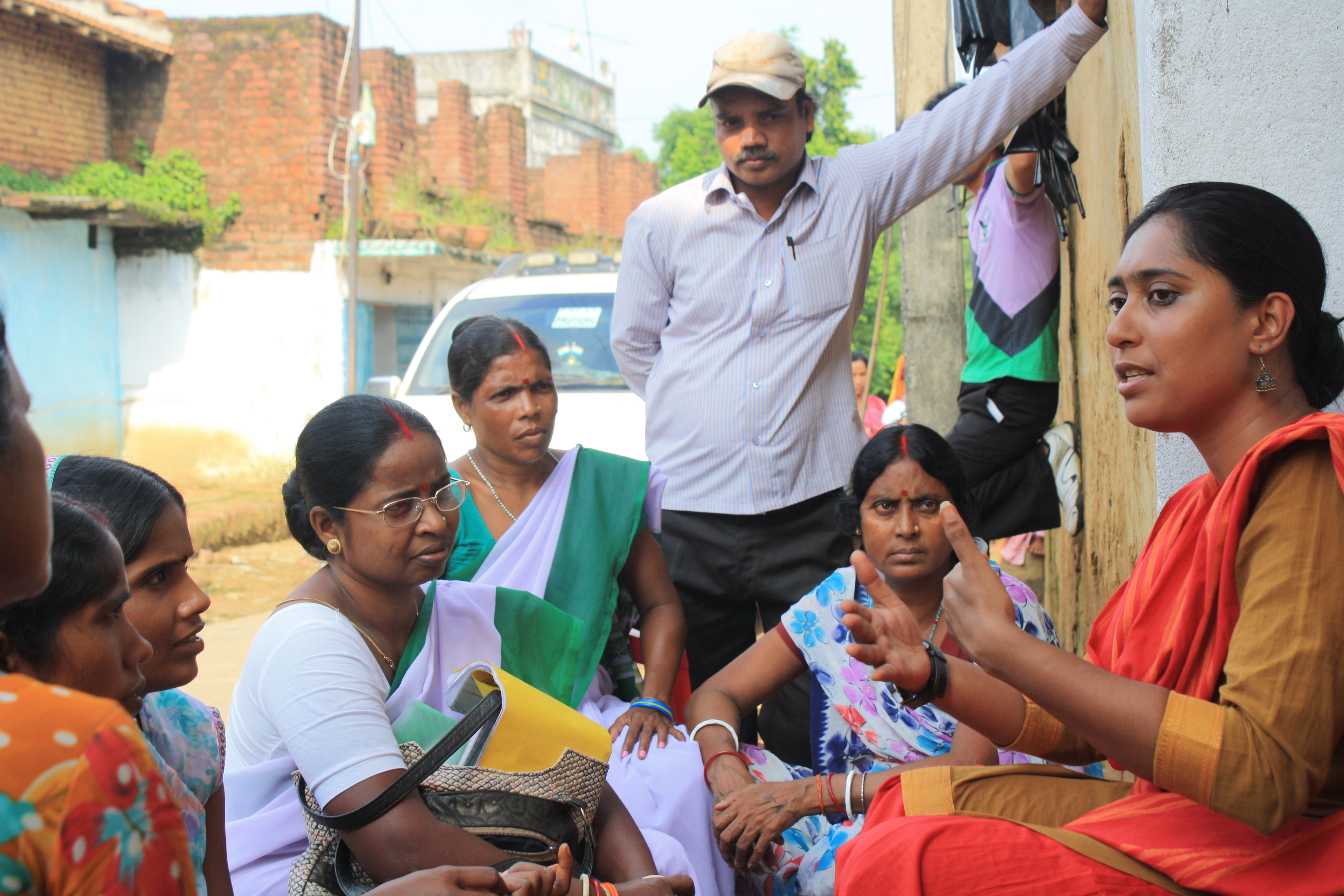Behaviour Change Communication (BCC) is a comprehensive communication strategy that distributes a tailored message across an identified community to encourage them to adopt safer and healthier behaviours. BCC requires organisations employing it to create contextual and complete content that the community members can relate to, feel motivated to engage with, and consider changing their perceptions about the topic in question, and eventually adopt or strengthen a positive behaviour.
BCC is a significant aspect of Gram Vaani’s work. Our messaging methodology for behaviour change begins with the technical content that our clients and partners share. If required, we also conduct focus group discussions (FGDs) with the relevant communities to understand their current level of awareness and perceptions on the topic, barriers, and opportunities, to inform the message creation (as part of the formative research phase).
We then storyboard a message matrix for conveying the key messages in ways that will result in the greatest transformative impact. Entertainment-education methodologies coupled with provocative questions and statistics that encourage reflection and action by the users are used. Such forms of messaging encourage discussions among listeners by recording their thoughts and experiences. Listeners get engaged in active discussions on our communication platforms and can hear their peers narrate their experiences. This practice has shown to strongly influence message recall, social and behaviour change, and social advocacy/accountability.
BCC is a significant aspect of Gram Vaani’s work. Our messaging methodology for behaviour change begins with the technical content that our clients and partners share. If required, we also conduct focus group discussions (FGDs) with the relevant communities to understand their current level of awareness and perceptions on the topic, barriers, and opportunities, to inform the message creation (as part of the formative research phase).
We then storyboard a message matrix for conveying the key messages in ways that will result in the greatest transformative impact. Entertainment-education methodologies coupled with provocative questions and statistics that encourage reflection and action by the users are used. Such forms of messaging encourage discussions among listeners by recording their thoughts and experiences. Listeners get engaged in active discussions on our communication platforms and can hear their peers narrate their experiences. This practice has shown to strongly influence message recall, social and behaviour change, and social advocacy/accountability.




